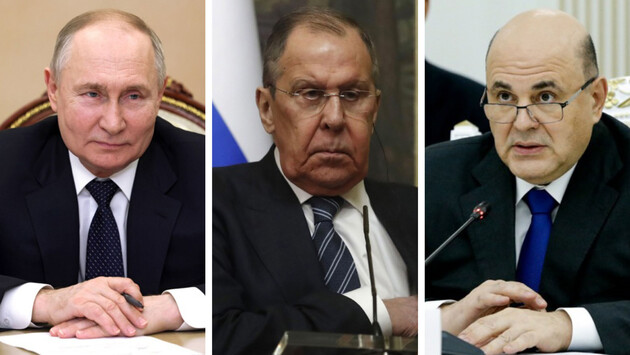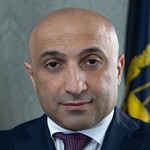Do 44 countries really support creation of special tribunal for aggression?

During the conference "Restoring Justice for Ukraine" held in The Hague this week, 44 out of 57 countries signed a joint declaration that includes condemnation of the crime of aggression and support for the establishment of an accountability mechanism. Among other things, it notes that our partners remain committed to the idea of establishing a special tribunal to investigate and prosecute the crime of aggression committed against Ukraine, which would help bring the military and political leadership to justice. It even reflects the proposal of the Netherlands to establish a special tribunal.
First of all, I would like to note that the process of dialogue and the topics discussed are extremely relevant, as we are talking about international legal instruments that will help Ukrainians feel at least partially satisfied with the justice grossly violated by unprovoked Russian aggression. And this should not be underestimated. At the same time, to make the most effective decisions, it is important that the dialog is open and reflects different views. Therefore, it is necessary to emphasize some key positions.
Firstly, the creation of an accountability mechanism is certainly relevant. At the same time, it is still essential for us to agree on its format. The proposed special tribunal for aggression cannot be the only option. If we want to restore justice for as many victims as possible, we need to build a mechanism that will ensure accountability for all types of international crimes committed on the territory of Ukraine: not only aggression, but also war crimes, crimes against humanity, and alleged genocide. Yes, of course, bringing the military and political elite of the Russian Federation, including Putin, to justice would not only be an act of fairness but also a symbolic precedent that would demonstrate the inadmissibility of aggression and become a kind of satisfaction for the victims of the invasion. But is it possible to bring to justice the "trio" of perpetrators of the crime of the Russian president, prime minister, and foreign minister through the mechanism proposed by our European colleagues? As long as they have personal immunity, it seems more likely that in the end, it will come down to sentencing several dozen high-ranking officials of the Russian Security Council.
I do not want to downplay this potential outcome, but it is hardly something that would bring a sense of justice much closer. In addition, many victims of international crimes are interested in seeing the direct perpetrators punished: those who tortured, raped, killed, and destroyed their homes. And without this, they simply will not be able to feel what the justice we are striving for is. And I would like to emphasize that justice should not be ephemeral or politically expedient, but real justice and built around the interests of victims and survivors. With this in mind, one crime should not be favored over others. So, do we have the right to focus only on the Russian top and those cases that the ICC and the Ukrainian justice system can investigate? And this will not be all of those currently registered. Not to mention the fact that their number is growing every day and will continue to grow. And wouldn't it be more appropriate, given the above points and the huge costs of creating a special tribunal, to build a mechanism for the consequences of all international crimes? In my opinion, we should consider the possibility of creating a justice mechanism with both national and international elements, which will allow us to investigate not only the crime of aggression but also other international crimes committed on the territory of Ukraine. In no way will this diminish the role of the ICC. But given the unprecedented scope of the task, unfortunately, there will be enough work for everyone.
Second, it is important to note which states signed the final declaration. They are Albania, Andorra, Australia, Austria, Belgium, Bosnia and Herzegovina, Bulgaria, Canada, Croatia, Cyprus, Czech Republic, Denmark, Estonia, Finland, France, Georgia, Germany, Greece, Iceland, Ireland, Italy, Japan, Latvia, and the United Kingdom, Liechtenstein, Lithuania, Luxembourg, Malta, Moldova, Monaco, Montenegro, the Netherlands, New Zealand, North Macedonia, Norway, Poland, Portugal, Romania, San Marino, Slovenia, Spain, Sweden, Ukraine, the United Kingdom, and the United States. The assistance of each of these countries is significant and valuable. Yet we do not see the countries of the so-called Global South here. And their voices are also crucial, because only in unity will we be able to lay the foundations for a new legal order based on the principles of international law. And also to create a legitimate and universally recognized justice mechanism that will not only punish criminals but will also become a preventive mechanism that will help ensure that such crimes are not repeated and punished in the future. Therefore, we still have some work to do in this regard. Yes, it is a difficult path, because it is a fight against Russian influence and propaganda. But the purpose does not tolerate compromise.
Thirdly, it is time to move beyond political declarations and discuss specific mechanisms for implementing the justice system. This process should be as apolitical as possible and involve civil society. The justice mechanism should be constructed in the legal framework and be based on international standards and internationally recognized procedures. This work should also be constantly communicated to society so that it is prepared for difficulties on the path to justice. No one can say for sure whether Putin and his entourage will end up in the dock because several factors must “come together” for this to happen: a mechanism must be built that can overcome immunities, and the accused must be extradited. In addition, we have to be prepared for long-term trials. Let's take Germany, where after the symbolic Nuremberg trials there were thousands of sentences handed down to former Nazi collaborators to this day.
Therefore, it is great that we are moving forward and discussing our path to justice. At the same time, the dialog must continue, and we must all realize that this is a bumpy road, with both victories and defeats. But none of this should stop us. Today, Ukraine needs to do everything possible to come as close as possible to restoring justice. It is therefore vital not to waste time and to maximize the support of our partners.
Read this article in Ukrainian and russian.
Please select it with the mouse and press Ctrl+Enter or Submit a bug











 Login with Google
Login with Google